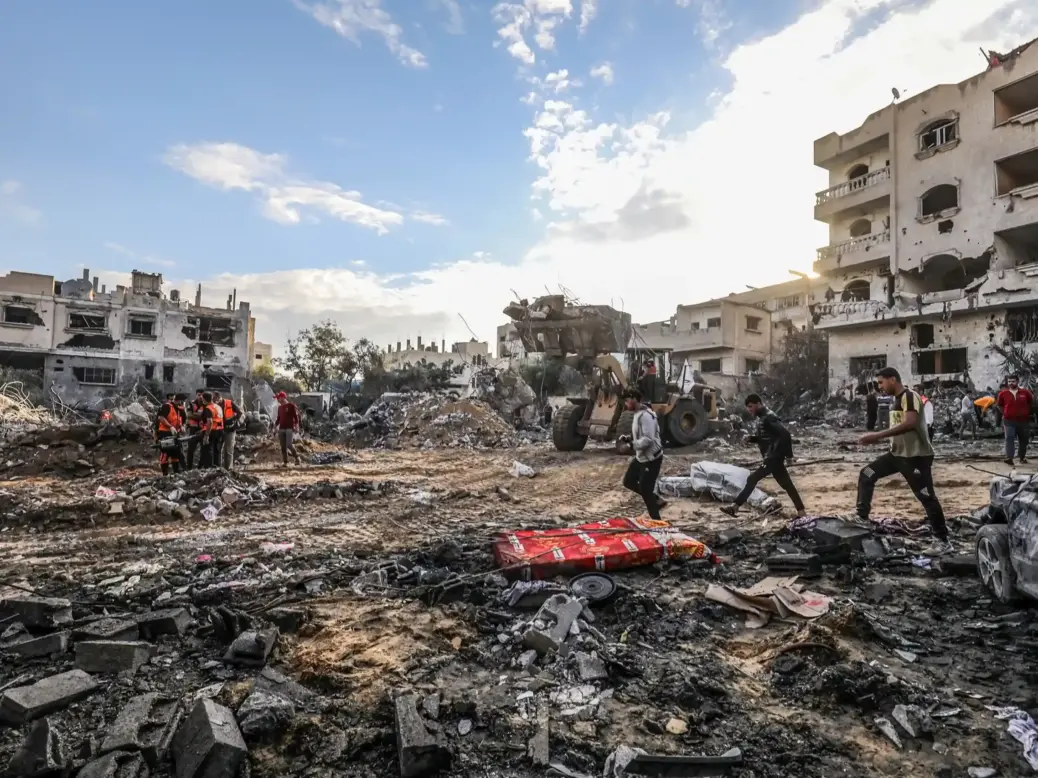
Friday 8 December marks the 63rd day of the Israel-Gaza war.
It is a war in which 16,000 Palestinians have died in Gaza and the West Bank – and there have been 1,200 deaths in Israel.
As of December 6, the Committee for the Protection of Journalists [CPJ] says their preliminary investigations show that at least 63 journalists and media workers were among those killed since the war began on October 7.
That’s one journalist killed per day on average.
It is a horrendous figure. They are all horrendous, inconceivable figures.
On Friday 10 November, one of my reporters emailed me. She was at a loss to understand why The Bureau of Investigative Journalism’s response to the deaths of journalists in Gaza was not stronger: Journalists have died on all sides and it is a painful loss. In light of this, our commitment to ‘neutrality’ should not dampen our response.
While we do not currently have any investigations focussed in the Middle East, her point was about the responsibility we have in embodying our values which, for TBIJ, includes pursuing what is right, acting with integrity and fairness and being courageous and just in our reporting. We believe fiercely in the value and vitality of public interest journalism, advocating for journalists doing that work and calling out wrongdoing – this is our very lifeblood.
She told me that the vague language we had used did not contribute to anything meaningful to conversations about the attacks on members of the press. She said she felt it would reflect poorly on our organisation because it indicated, in her words. that we are not coming out strongly in support of an issue that is central to our existence as a media organisation, the protection of press freedom worldwide.
The following week I listened to a keynote speech by the formidable Prof. Lucy Kueng at the Newsrewired conference in London. Kueng is an expert on strategy, innovation and leadership and she focussed on the major leadership challenges in 2024. A fascinating and apposite session in which there was a slide about how Gen Y and Z are wanting a different type of leadership. I have been thinking about that a lot.
This week, Reuters Institute published their report into how newsrooms are changing, in which they conclude – among other things – that “most media leaders struggle to embrace diversity in full”. I have been thinking about that a lot too.
What is the point of diversifying our newsrooms if we are not here to do things differently? I do not mean editorialising. The Bureau is here to follow the facts, lift the stones that people don’t want us to look under and hold to account. That will never change. But I do mean listening to the voices of all our staff, taking in a range of diverse views and becoming more attune to the heartbeat of the newsroom. Ultimately I have always believed journalism is a human endeavour.
I am grateful for CPJ in speaking out so strongly for our profession. There is a vital need for independent reporting, a factual recording of events, a capturing of history and a holding to account.
Journalism matters in a modern democracy – indeed, this is the very reason TBIJ was set up. And so, to witness the killing of so many journalists – those who are shouldering the responsibility of telling the world what is happening – is devastating for our industry.
The silence from many newsrooms about the deaths of journalists in this conflict – including my own to date – has been deafening.
Challenge as a leader is never comfortable, but I am grateful to my reporter and the wider newsroom for opening up a conversation and for the respectful debate that has ensued.
Journalists have a fundamental right to cover the news. And they are facing exponential risk in Gaza. The Bureau was wrong not to speak out sooner. I am glad to be doing so now.
“CPJ emphasises that journalists are civilians doing important work during times of crisis and must not be targeted by warring parties,” said Sherif Mansour, CPJ’s Middle East and North Africa program coordinator. “Journalists across the region are making great sacrifices to cover this heart-breaking conflict. Those in Gaza, in particular, have paid, and continue to pay, an unprecedented toll and face exponential threats. Many have lost colleagues, families, and media facilities, and have fled seeking safety when there is no safe haven or exit.”
The CPJ notes: “Under international law, journalists are civilians who must be respected and protected by all warring parties and deliberately targeting journalists or media infrastructure constitutes a war crime.”
Email pged@pressgazette.co.uk to point out mistakes, provide story tips or send in a letter for publication on our "Letters Page" blog
